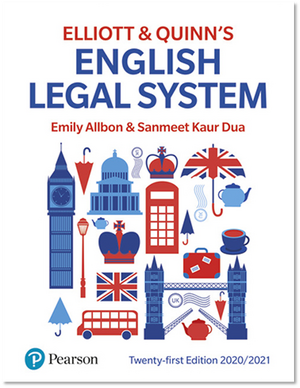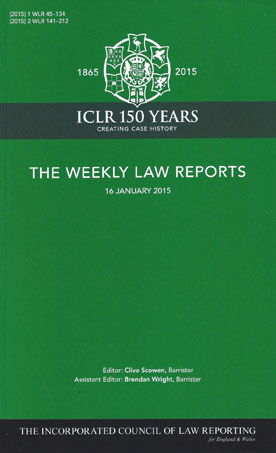Top 5 Tips For The GDL
Here are the Top 5 Tips for doing well from Elijah Granet (who was the first-placed student in the 2019-20 City GDL cohort). This piece is aimed specifically at GDL students but those on other programmes will certainly be able to take valuable pointers away...
1. Get started early

The biggest challenge in the GDL is time. The pace of learning is deliberately fast, and—especially at City—the content complex and often difficult (just like the law). The best way to work around this limitation is to start preparing before you ever sit down for your first lecture. Fortunately, City makes this easy by providing recommended reading and textbooks ahead of beginning the course. The texts on this list are invaluable. Learning the Law, by Glanville Williams, is a little pocket-sized paperback which is absolutely worth the price. Reading this book before starting the GDL helped me understand the grammar and rhythm of English & Welsh law. It not only gave me a great understanding of how the law is taught and examined, but it also prepared me for mooting, minis, and other extra-curricular activities with its helpful tips, particularly on pronunciation. For example, it was very useful to know before opening my mouth in tutorial that Law French is pronounced entirely differently (thanks to the Normans) than Actual French! The recommended reading list also included Allbon & Kaur Dua’s Elliott & Quinn: English Legal System, which was perfect preparation not only for understanding the hierarchy and operation of precedent, but also for learning the basics of court procedure (perfect for moots and interviews).
2. Find the right textbook for the right time
City’s library and online resources are replete with numerous textbooks for each GDL subject, ranging from simplified ‘cram guides’ (comprising mostly model essays) to weighty practitioners’ texts (comprising mostly extensive footnotes). At each stage of the GDL, the key is to match yourself to the proper level of textbook to keep pace with your revision. Generally, during much of the year, you will want to alternate between a book with Texts, Cases, and Materials in the title, and a practitioner’s text. For example, in the autumn term, I studied land by perusing McFarlane & Nield’s Land Law: Text Cases & Materials and the storied Megarry & Wade on the Law of Real Property (edited by City’s own Prof Martin Dixon). I would use the materials book to get both a good summary of the law and critical literature, and then take some ‘deeper dives’ into specialised areas (like the history of land tenure) by consulting the definitive Megarry & Wade. Towards the end of the year, I switched my land studies to the excellent Oxford Core Text Series, which do an excellent job of conveying the important points and cases without being bogged down with extraneous information. However, the decision about the ‘right’ textbook is idiosyncratic, and requires a great deal of adventure: it wasn’t until last minute revision that I discovered I really liked Markesinis & Deakin’s Tort Law. Fortunately, the numerous databases and online services City subscribes to meant that I could, even while COVID stranded in California, access an entire library’s worth of texts.
3. Engage with primary sources

As the GDL operates on such a compressed timeline, it can be tempting to try to skip reading cases and instead rely on notes, cram books, and summaries. This is, in my opinion, a dangerous path. Many of the questions asked in tutorials and lectures arose from confusion not with the substantive law, but rather with errors accumulated by reading summaries of summaries of cases. Furthermore, reading cases is the only way to understand the great dialogue of the common law, and to comprehend why a judge ruled in a certain way. I did not come anywhere close to comprehending the infamously complex Vandervell saga in equity until I actually sat down and read the judgments. There is simply no substitute for engaging with the law by hearing the judge or judges describe their reasoning in their own words. I found that my comprehension improved even by reading unrelated new cases in the Weekly Law Reports, because I was able to start thinking a bit like a judge. Incidentally, learning to properly read a case is an absolute necessity for mooting and professional experience (eg mini-pupillages or training contracts). Of course, there isn’t remotely time to read all or even most of the cases on the GDL syllabus; here, you should choose carefully, and read key cases whenever you feel unsure or confused, or equally, where you feel particularly passionate (I read almost every case on the public law syllabus, because I found them so incredibly interesting).
4. Find your study nook and rhythm
Amidst all the disruption and upheaval of the current pandemic, it is more important than ever to find the right routine for learning and revision. The first task is to find a nook, by which I mean a little place of comfort and focus where you can really settle in for hours of long revision. Before the pandemic hit, I had the luxury of taking advantage of being (like all City students) a University of London student. This meant I could start my revision at City’s (former) Northampton Law Library, then, on weekends, decamp to UCL’s main library. After a mini-pupillage, I could pop to KCL’s Maughan library, or, if the whim took me, enjoy the splendour of Senate House library. Then, in the pandemic (prior to my Californian sojourn) I initially set aside a single chair and small table in my shared London flat—where space was at a premium— as my special study place, distinguished from my (quite nearby) sleeping and eating places. This spatial separation was key to letting me settle into the mindset needed for long revision. I also got creative and turned Hyde Park into a study location, taking audio lectures and useful podcasts (like Alastair Hudson’s Equity podcasts) on legally permitted runs once a day.
Equally important is finding a rhythm. I liked studying into the night, but leaving mornings relatively open; others will do better in the opposite. During weeks packed with minis, my study might be sparse; in other times, it would be all consuming. The key is to have a reliable routine which keeps the material fresh on your mind. During lockdown, I set aside specific days for specific topics: Monday, for instance, was devoted, arbitrarily, to land law.
5. Emphasise social synergy, not sacrifice
The GDL is a packed year for everyone. In addition to the voluminous academic workload, most GDL students are eagerly involved in extracurriculars like mooting and minis/vac-schemes. In sum, it might seem like there’s no time left whatsoever for social life, relaxation, or any conventionally fun things (although law can be quite fun sometimes). Yet, social sacrifice—giving up contacts just to make time for studying—is not the way to succeed on the GDL. This became really apparent to me when lockdown hit, and I realised how much attending minis, going to in-person moots, the many social events on a ‘normal’ GDL calendar, and most of all, the gym (physical activity being an essential and irreplaceable respite from staring at a screen for most of the day). During lockdown, I came to see that drinking with friends at the Dame Alice Owen by the Northampton Campus, lifting in the delightful basement of the CitySport gym, and listening to the sublime choral performances at the Temple Church were not ancillary to my studies, but, in fact, essential aspects of maintaining the otherwise punishing pace of learning and revision.

In lockdown, I had to invent my own respites, from rediscovering outdoor running, to having the good fortune to have access to a dog with a penchant for playing fetch, to trying my hand at cooking. Most of all, social ‘contact’ via the internet with my GDL colleagues was key to maintaining a semblance of sanity during the extreme stress of revision amidst a pandemic. For the GDL, you must find the extracurricular activities, in addition to mooting, revision and minis, which provide the synergy and respite necessary to approach your legal studies with the necessary zeal and energy.
''Many thanks to Elijah Granet for this helpful piece. Elijah, who is originally from California, is a PhD student in EU law at Universität Bayreuth in Germany, completing the GDL at City, University of London in June 2020. Before law, he completed an MPhil in Politics & International Relations at Clare College, Cambridge. His main areas of legal interest include commercial, private international law, administrative, and European law.
Outside the law, he also fences, occasionally appears on game shows, and thinks of third items in lists. Elijah blogs at ezgranet.com...''